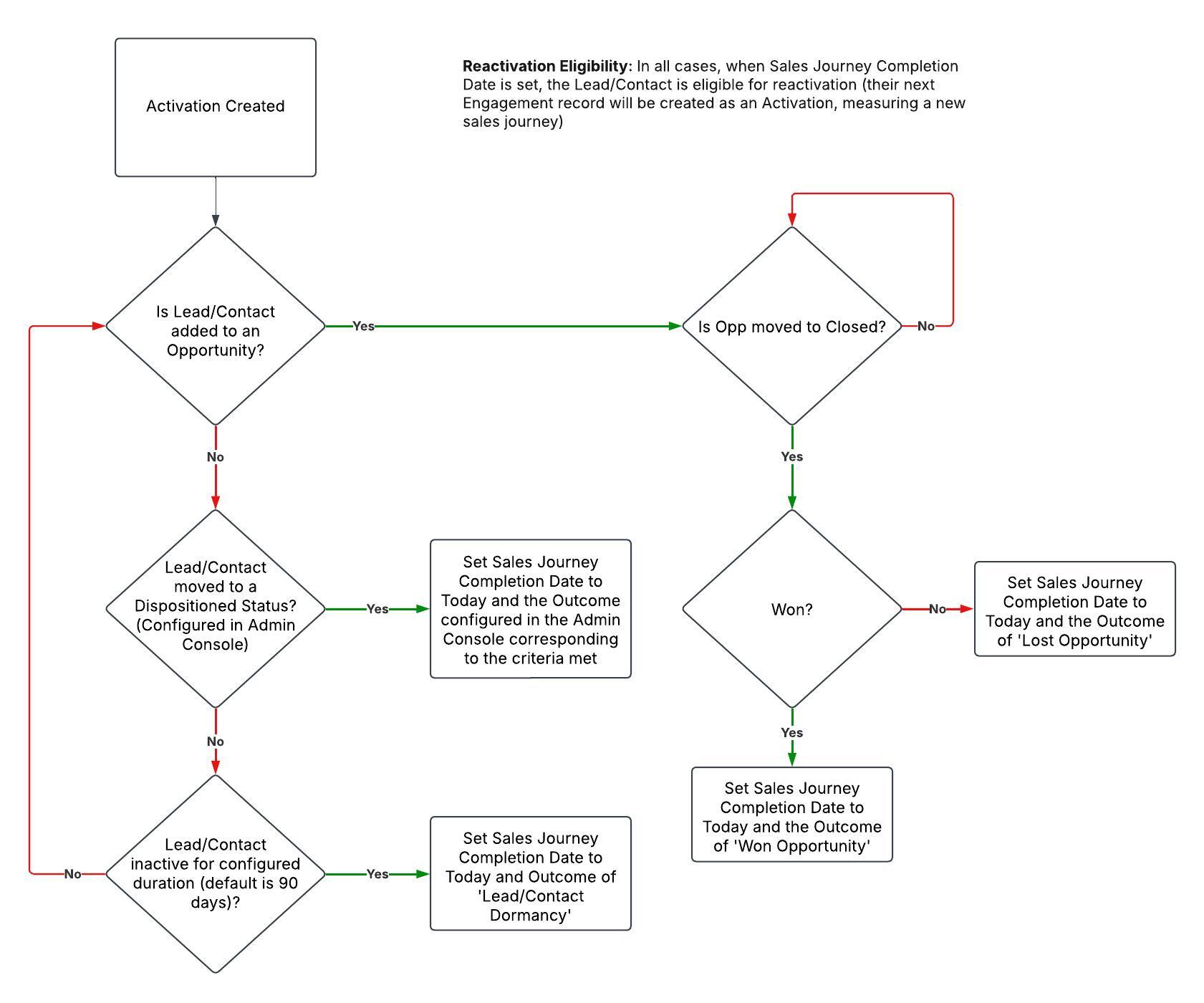Reactivation eligibility determines when a dormant Lead or Contact can begin a new sales journey, creating a fresh Activation Engagement to track new attribution and progression data.
For a refresher, see the Activations vs. Influencing Engagements article.
Why it matters
Proper reactivation eligibility ensures:
Opportunity attribution uses recent, relevant interactions
Dormant prospects can be tracked through multiple sales journeys
Accurate "lead" counting in reports (counting Activations, not Lead records)
How it works
When a Lead/Contact completes a sales journey (Sales Journey Completion Date gets a value), their next Engagement will be created as an Activation.

Sales Journey Completion
To manage reactivation eligibility and report on the conclusion of each sales process, the system tracks when sales journeys end using two key fields:
Sales Journey Completion Date: When the process ended
Sales Journey Outcome: How it ended (e.g., Disqualified/No Response Lead, Won/Lost Opportunity, etc.)
Sales journeys are completed in two ways:
Lead, Contact, or Opportunity Dispositioning
When records reach configurable terminal states:
Lead/Contact: Status = Disqualified, No Response, etc.
Opportunity: Closed Won or Lost
Note: Once an Activation links to an Opportunity, only the Opportunity controls when the Activation completes
Lead or Contact Dormancy
To prevent stalled sales processes (i.e., when a rep doesn’t update a Lead/Contact before moving on), the system auto-completes inactive Activations after a configurable period (default: 90 days)
Requirements:
No new Engagements during the period
No Stage Date updates during the period
Not associated with an Opportunity
This is configured in the Admin Console in the Integrous Analytics App in Salesforce. See the related Sales Journey Completion article.
Sales Journey Completion Logic:
